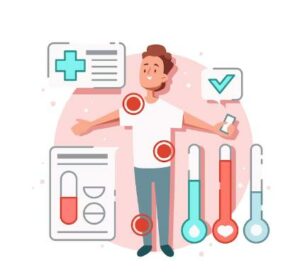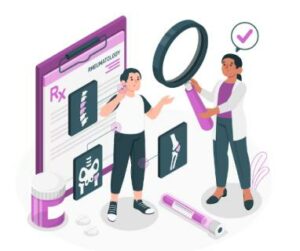Maintaining good health is an invaluable asset that contributes to our overall well-being and quality of life. In our busy lives, it is easy to overlook the significance of regular medical check-ups and preventive care. However, investing time in these proactive measures can lead to early detection of potential health issues and help prevent the onset of chronic conditions.

Why are Regular Health Check-ups Important?
Regular health check-ups act as a vital tool for early detection and prevention. By visiting your healthcare provider regularly, you can identify and address any potential health concerns before they worsen. These medical check-ups provide an opportunity for your doctor to evaluate your overall health, assess your risk factors, and recommend appropriate interventions to maintain or improve your well-being.

The Importance of Preventive Health Care:
Preventive care focuses on proactive measures, including regular medical check-ups, to prevent the onset or progression of diseases. It encompasses a range of activities aimed at maintaining optimal health. Here are some key reasons why preventive health care is crucial.
- Early Detection: Regular check-ups and screenings allow for the early detection of potential health issues, enabling timely interventions and better treatment outcomes.

- Disease Prevention: Preventive care measures, such as vaccinations, lifestyle modifications, and health education, help reduce the risk of developing chronic conditions like heart disease, diabetes, and certain cancers.

- Cost Savings: Investing in preventive care can lead to significant cost savings in the long run. Detecting and treating diseases at an early stage is generally more cost-effective than managing advanced conditions.

- Improved Quality of Life: By proactively managing your health through preventive care, you can enhance your overall quality of life, enjoying better physical and mental well-being.

Benefits of Regular Check-ups for Chronic Conditions
Regular medical check-ups for individuals with chronic conditions offer important benefits, regardless of experiencing symptoms:
Tracking Treatment Progress
Regular check-ups for chronic conditions like diabetes, hypertension, epilepsy, and others allow healthcare providers to monitor treatment effectiveness. For example
- Diabetes: Check-ups assess blood sugar control and adjust medication or lifestyle changes.
- Hypertension: Check-ups track blood pressure levels and fine-tune treatment.
- Epilepsy: Check-ups monitor seizure frequency and evaluate medication effectiveness.
Evaluating Medication Effectiveness
Check-ups provide an opportunity to assess how well medications are controlling symptoms and managing disease progression, allowing for adjustments if necessary.
Early Detection of Complications
Regular check-ups are essential for identifying potential complications at an early stage, even without symptoms, to prevent further health issues. Examples include
- Diabetes Complications: Check-ups help detect diabetic complications like neuropathy, retinopathy, and kidney damage before they worsen.
- Medication Complications in Epilepsy: Regular check-ups monitor medication effectiveness and identify any adverse reactions or drug interactions.
Preventive Measures
Healthcare providers offer guidance on lifestyle modifications and adjust treatment plans to control symptoms, prevent exacerbations, and improve overall well-being.
Empowerment through Education
Check-ups provide educational resources, empowering individuals to better manage their condition and make informed decisions about their health.

Conclusion
Regular medical check-ups and preventive care are integral components of a healthy lifestyle. By prioritizing these proactive measures, you can detect potential health concerns early on, prevent the onset of chronic conditions, and make informed decisions regarding your well-being. Remember, your health is your most valuable asset, and investing in it through regular medical check-ups and preventive care is a choice that will benefit you in the long run. Embrace the path to a healthier future starting today.

Disclaimer:
This blog provides general information and encourages seeking medical care for specific conditions. It is important to note that this information is not a substitute for medical advice, and we cannot be held responsible for any consequences.

